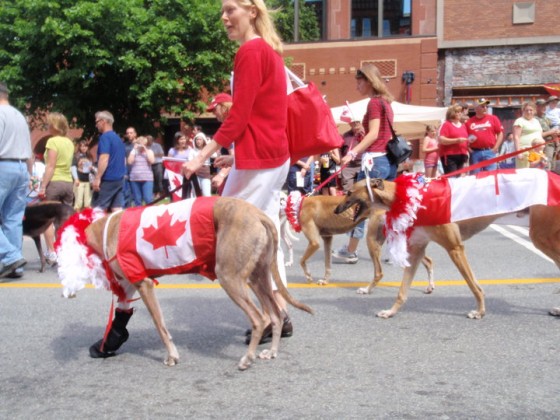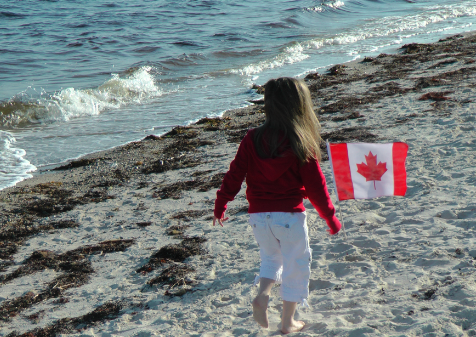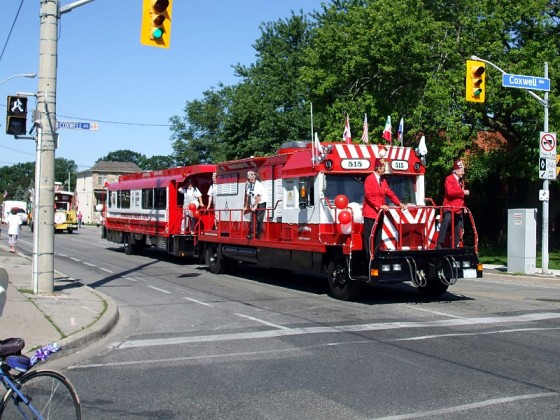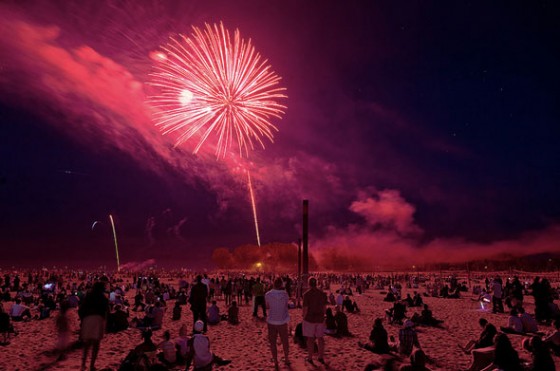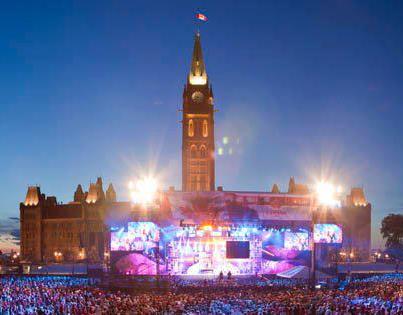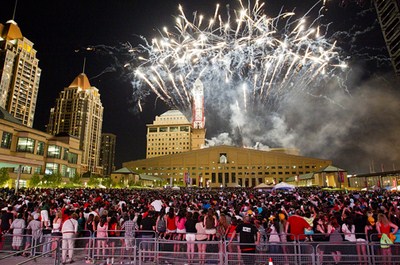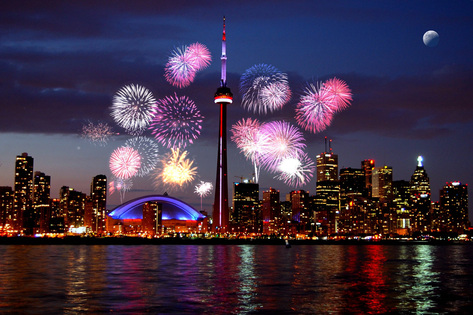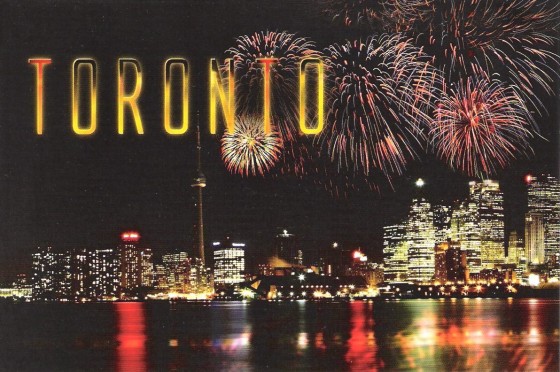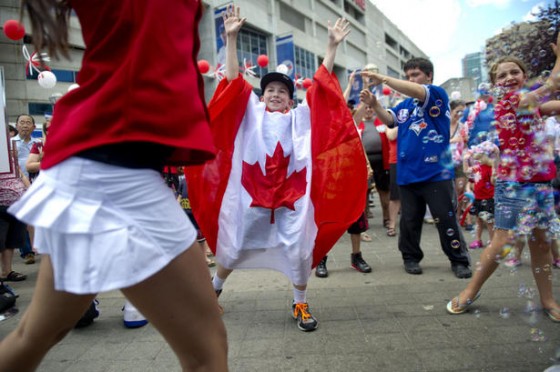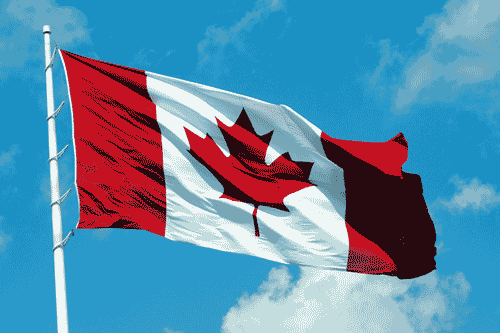
To all of my fellow Canadians in Canada and around the World, HAPPY CANADA DAY!
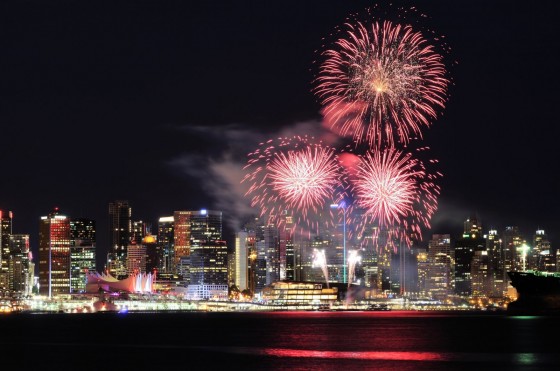
Canada Day (French: Fête du Canada) is the national day of Canada, a federal statutory holidaycelebrating the anniversary of the July 1, 1867, enactment of the British North America Act, 1867 (today called the Constitution Act, 1867, in Canada), which united three colonies into a single country called Canada within the British Empire. Originally called Dominion Day(French: Le Jour de la Confédération), the name was changed in 1982, the year the Canada Act was passed. Canada Day observances take place throughout Canada as well as by Canadians internationally.
Frequently referred to as “Canada’s birthday”, particularly in the popular press, the occasion marks the joining of the British North American colonies of Nova Scotia, New Brunswick, and the Province of Canada into a federation of four provinces (the Province of Canada being divided, in the process, into Ontario and Quebec) on July 1, 1867. Canada became a kingdom in its own right on that date, but the British Parliament kept limited rights of political control over the new country that were shed by stages over the years until the last vestiges were surrendered in 1982 when the Constitution Act patriated the Canadian constitution.
Under the federal Holidays Act, Canada Day is observed on July 1 unless that date falls on a Sunday, in which case July 2 is the statutory holiday, although celebratory events generally take place on July 1 even though it is not the legal holiday. If it falls on a Saturday, any businesses normally closed that day will generally dedicate the following Monday as a day off.
Most communities across the country will host organized celebrations for Canada Day, usually outdoor public events, such as parades, carnivals, festivals, barbecues, air and maritime shows, fireworks, and free musical concerts, as well as citizenship ceremonies for new citizens.There is no standard mode of celebration for Canada Day; professor of International Relations at the University of Oxford Jennifer Welsh said of this: “Canada Day, like the country, is endlessly decentralized. There doesn’t seem to be a central recipe for how to celebrate it—chalk it up to the nature of the federation.”However, the locus of the celebrations is the national capital, Ottawa, Ontario, where large concerts and cultural displays are held on Parliament Hill, with the governor general and prime minister typically officiating, though the monarch or another member of theRoyal Family may also attend or take the governor general’s place. Smaller events are mounted in other parks around the city and in Gatineau, Quebec
Given the federal nature of the holiday, celebrating Canada Day can be a cause of friction in the province of Quebec, where the holiday is overshadowed by Quebec’s National Holiday, on June 24.For example, the federal government funds Canada Day events at the Old Port of Montreal—an area run by a federal Crown corporation—while the National Holiday parade is agrassroots effort that has been met with pressure to cease, even from federal officials. The nature of the event has also been met with criticism outside of Quebec, such as that given by Ottawa Citizen columnist David Warren, who said in 2007: “The Canada of the government-funded paper flag-waving and painted faces—the ‘new’ Canada that is celebrated each year on what is now called ‘Canada Day’—has nothing controversially Canadian about it. You could wave a different flag, and choose another face paint, and nothing would be lost.”
Canada Day also coincides with Quebec’s Moving Day, when many fixed-lease apartment rental terms expire. The bill changing the province’s moving day from May 1 to July 1 was introduced by a federalist member of the Quebec National Assembly, Jérôme Choquette in 1973, in order not to affect children still in school in the month of May.

